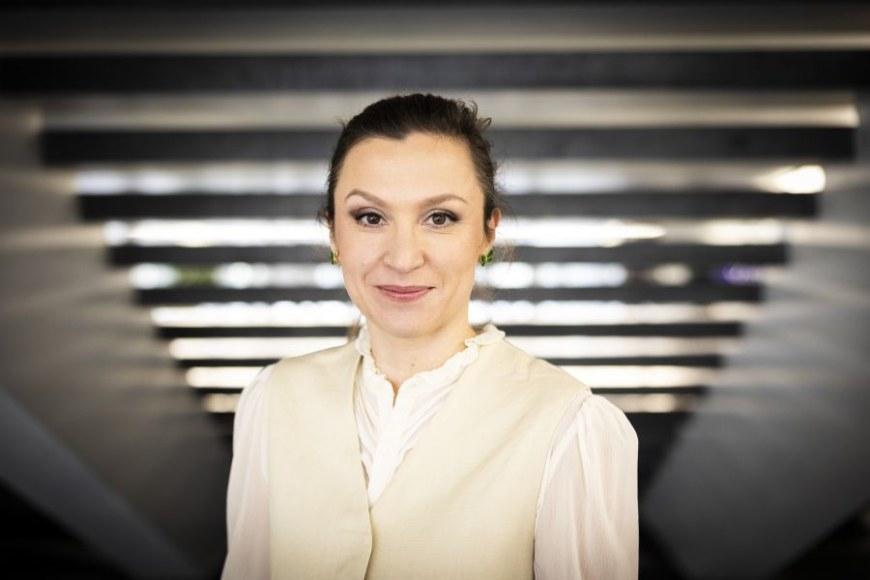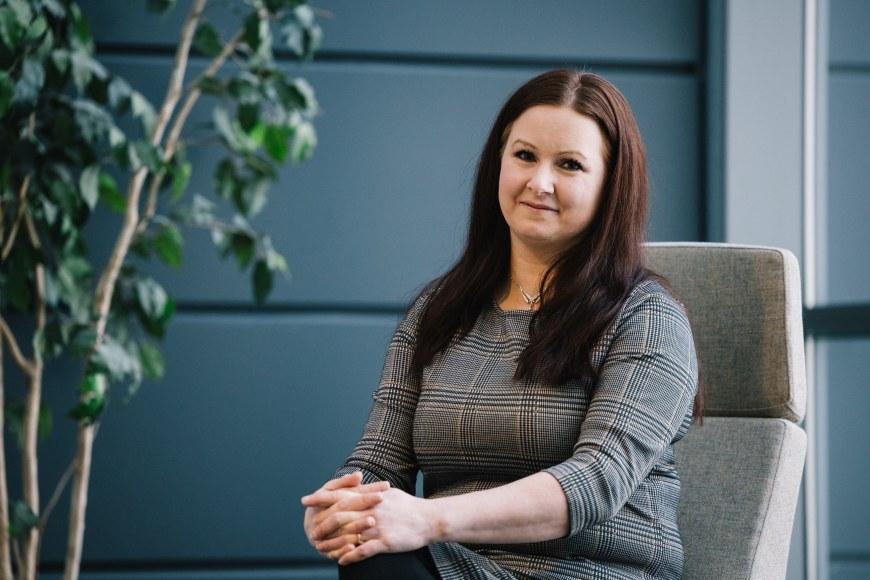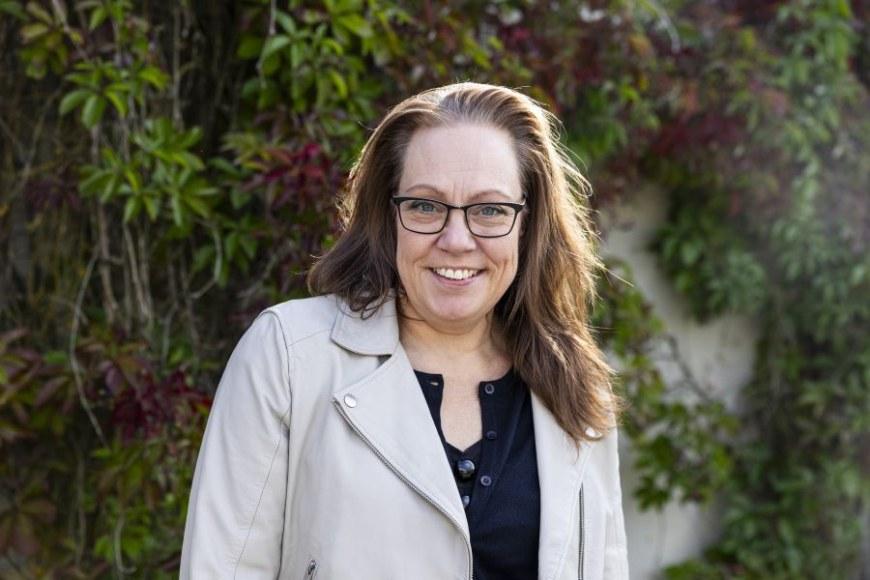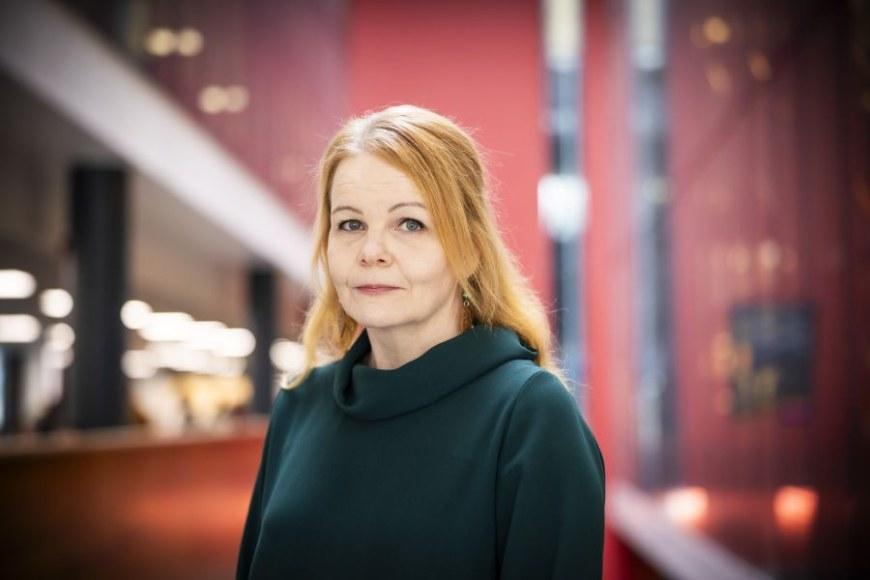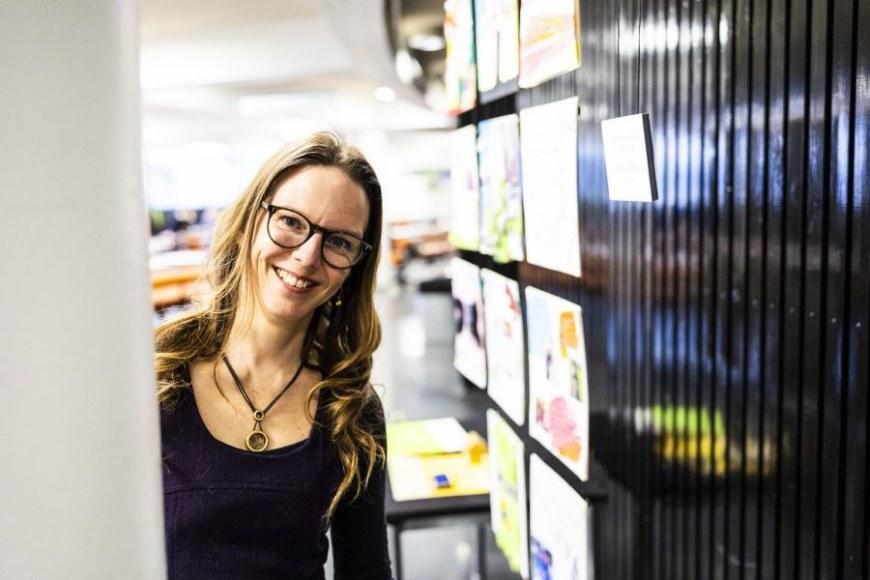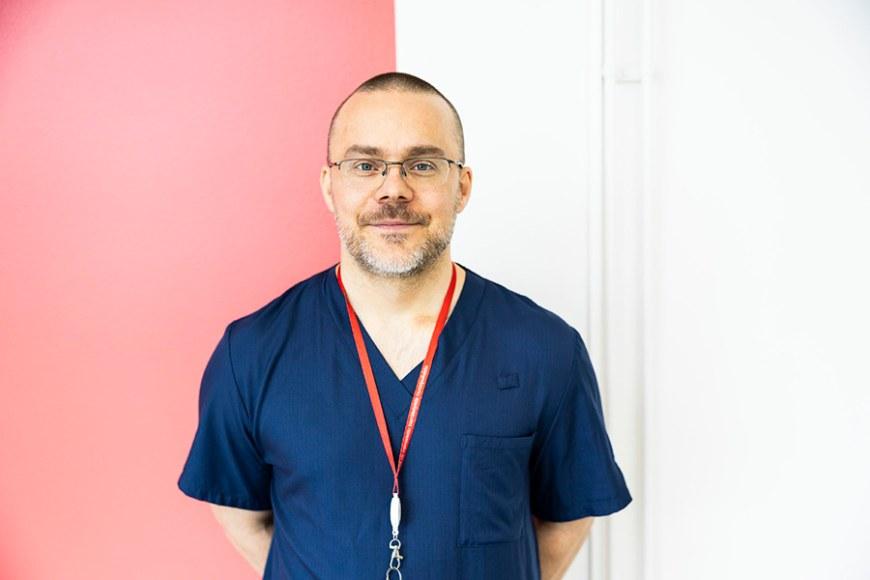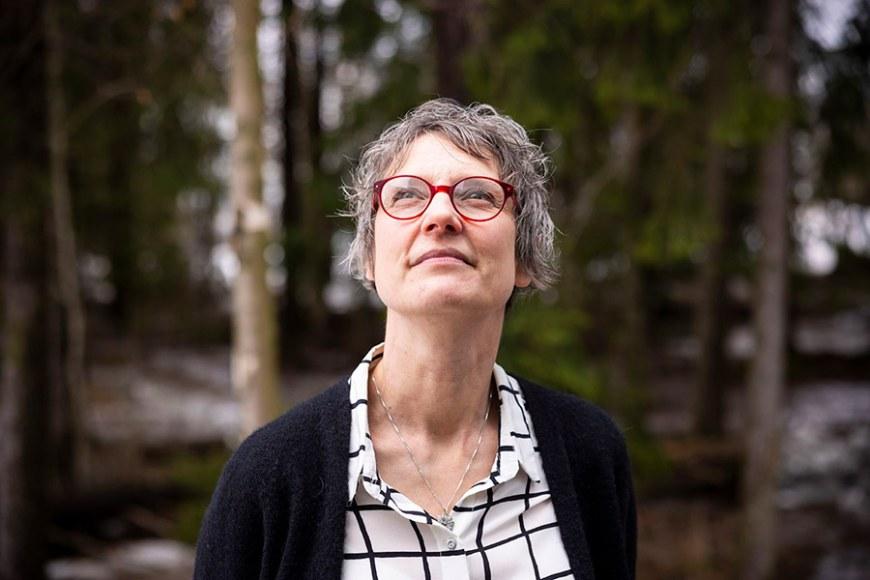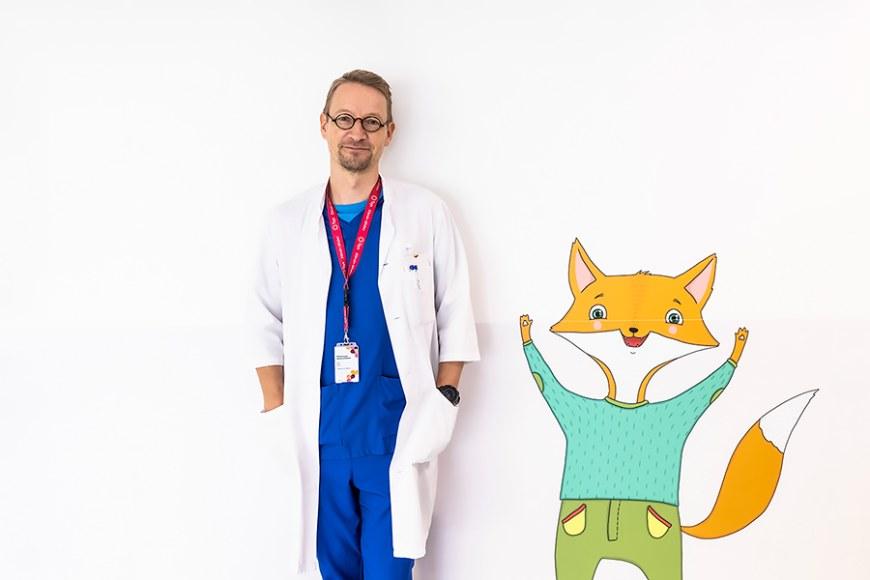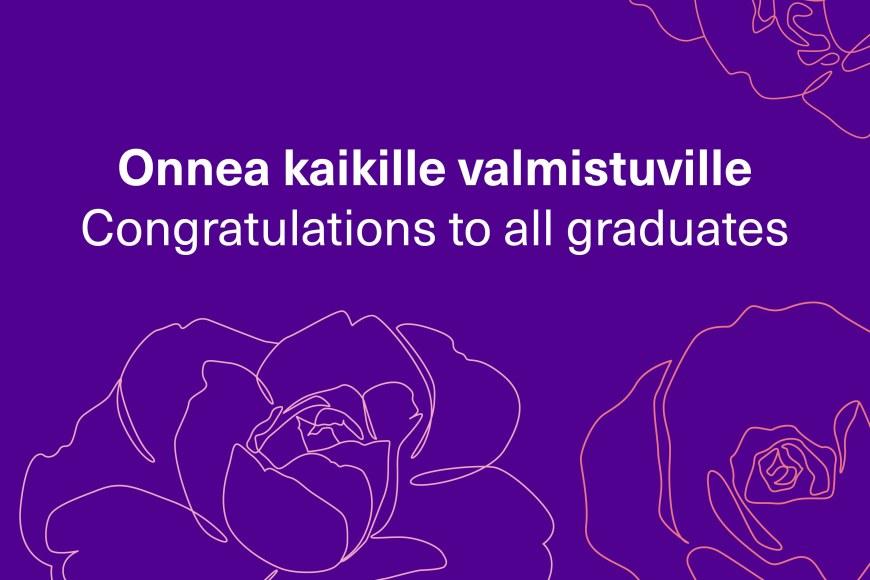Elina Kestilä-Kekkonen studies political engagement which is important for the future of democracy
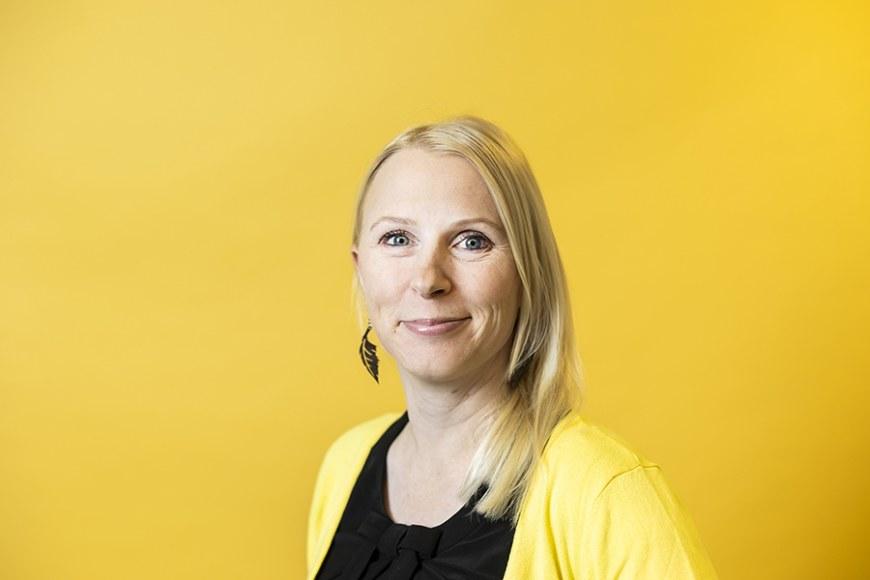
Political engagement describes, among other things, people’s interest in politics and trust in political institutions. It allows political scientists to examine issues such as participation, the choice of one’s political reference group, and political values and attitudes.
Professor Elina Kestilä-Kekkonen leads POENG — Political Engagement Research Group at Tampere University. The group strives to understand the similarities and differences of political engagement and attitudes. More broadly, the group is looking at political change as younger generations are reaching voting age.
“Young people are united but also divided by different issues than their parents. This has implications for western democracy, as the young people become decision-makers in later life. However, their values and new political cleavages will also influence what kind of politics will be made in the future,” Kestilä-Kekkonen says.
In addition to her, the POENG research group comprises three postdoctoral and three doctoral researchers. The group has also studied political competence i.e. whether people feel that they understand politics and are able to influence it. Kestilä-Kekkonen says that Finland has an exceptionally high level of political trust, but low political competence on average. The question that follows is whether there can be high quality trust when citizens feel that they do not understand politics.
She finds that voter turnout is reasonably good in Finland. However, the problem is the divergence of citizens in terms of political engagement. Societal inequality emerges when some sections of the population are excluded from political participation and decision-making. She calls for a reflection on what representative democracy will look like in the future.
“Education currently has a big impact on who votes. The lower the turnout, the more inequality is created. Education is also strongly linked to political competence, which continues to influence people’s willingness to participate,” Kestilä-Kekkonen says.
“The same people who vote also get involved in new forms of political participation, such as participatory budgeting. However, their goal should be to involve a broad range of people from different population groups,” she points out.
Kestilä-Kekkonen has had a long career as a lecturer and fixed-term professor at the University of Turku and Tampere University. After working as a tenure track Associate Professor, she was appointed Professor of Political Science at the Faculty of Management and Business, Tampere University, in March 2024.
Inequalities in political engagement could be levelled out at school
At present, Kestilä-Kekkonen is leading a project funded by the Kone Foundation. The four-year research project Discontinuities in Intergenerational Transmission of Political Values in Finland investigates the ways political values are transmitted between generations.
The study expands the Research Council of Finland-funded projects Kestilä-Kekkonen and her research group have undertaken on the mechanisms of fostering political trust and the impact of political socialisation on 15-year-olds. The researchers studied the significance of the family’s socioeconomic background on political behaviour before voting age.
“Even at the age of 15, young people from lower socio-economic backgrounds do not perceive themselves as having the same understanding of politics as those from families where the parents are doing better socio-economically and are often more politically engaged. The trend towards segregation continues in secondary education, with a division between upper secondary school and vocational college students,” Kestilä-Kekkonen says.
The researchers emphasise democracy education as a way for schools to even out the differences of starting points caused by the home environment. Kestilä-Kekkonen still finds it problematic that upper secondary school students receive a good dose of civic education, but its share has been further reduced in vocational education.
“A key finding of our research was that discussing societal issues in comprehensive school could go some way to closing the gap. In a polarised society, a safe classroom atmosphere and teachers’ guiding are essential enablers of equal discussion on divisive issues,” she says.
Surveys yield generalisable information on political behaviour
Elina Kestilä-Kekkonen completed her doctoral dissertation in political science in 2007. Her dissertation at the University of Turku dealt with factors that increase the popularity of popular right-wing politics in Europe. In one of the research articles included in the dissertation, she predicted the rise of populism also in Finland. She showed that, for example, attitudes to immigration were not significantly more tolerant than in countries that had already witnessed a rise in populism by that time. In the 2011 general elections, the populist Finns Party won a major victory.
Since her dissertation, Kestilä-Kekkonen has mainly applied the quantitative research approach. Her specialism is the design and analysis of surveys, which she has also taught at Tampere University where she has developed teaching on the use of quantitative methods.
In wide-ranging surveys, Kestilä-Kekkonen is fascinated by the understanding they yield on people’s behaviour because the results can be extrapolated to the population level. Researchers can thus say something about the way people behave and think on average and about existing differences.
“Moreover, it is also fascinating that people may think differently than what the researcher expects. We easily think that a voter who supports a smaller public sector also supports lower taxation, but this is not necessarily how things go in surveys. Situations where the researchers’ own ideas are not working are very interesting. In those cases, people make other associations than those they are expected to make on the theoretical level,” Kestilä-Kekkonen says.
Investing in teaching at Tampere University
Already in 2015, Kestilä-Kekkonen brainstormed a research project course to make research more familiar to students. At the same time, the students also learned project management and collaboration skills. Since then, research project courses have been implemented in political science every year.
At the beginning of 2024, guided by doctoral students Maarika Kujanen and Venla Hannuksela, students studied the influence of party affiliation on the choice of a presidential candidate. Professor Tapio Raunio is leading a research project course on EU elections and, in the autumn, on the US presidential election.
More generally, Kestilä-Kekkonen emphasises uncomplicated, non-hierarchical communication with students. A supervising professor does not need to emphasise his or her role if the agreed study and research tasks are conducted.
An important person for Kestilä-Kekkonen’s career has been Hannu Nurmi, professor emeritus of the University of Turku, who supervised her doctoral thesis, and from whom she has learned, in particular, what it means to be a good supervisor and mentor. Professor Tapio Raunio, on the other hand, is an example of a good researcher and teacher who wants to develop teaching and combine it with current research. A successful female professor in her student days and Kestilä-Kekkonen’s role model was Professor Kaisa Herne, her current colleague.
“I think that political science more broadly studies power. Power is a concept that unites political philosophy scholars, experimental researchers, and EU researchers at Tampere University. Who has power and how it is wielded — in my research, who has no power — provides core concepts for all of us, and at the same time, it is great to have methodologically diverse research at the University.
Welcome to the inaugural lectures of the new professors on 16 May 2024
Elina Kestilä-Kekkonen
- Doctor and Adjunct Professor of Political Science. Published her dissertation on factors impacting the popularity of the populist right in 2007.
- Professor of Political Science at the Faculty of Management and Business, Tampere University; Head of the Politics Unit.
- Research topics: political engagement, political trust, election research, political values and attitudes.
- Conducts research collaborations nationally and internationally. In Finland, her closest collaboration network is Finnish National Election Study Consortium (FNES), which brings together researchers at Helsinki, Tampere and Åbo Akademi Universities.
- Member of the FNES steering group and twice the principal investigator in national election studies.
- Her main international partners are the University of Amsterdam and KU Leuven. The research collaboration is especially related to the political behaviour of young people and the transmission of political values.
- With her research team, she has collaborated with the Ministry of Justice, Ministry of Finance and Ministry of Education and Culture. Elina Kestilä-Kekkonen and her team have had an impact on, for example, national democracy programmes. She has participated in parliamentary election working groups as an expert member.
- Kestilä-Kekkonen has four hunting Labrador retrievers, which she also breeds on a small scale. With the dogs, she participates in hunting tests and bird hunting.
- She has received numerous teaching awards. Most recently, she was awarded Teacher of the Year 2023-2024 title by Iltakoulu, the political science students’ association.
Contact person
Elina Kestilä-Kekkonen
Professor, valtio-oppiAuthor: Mikko Korhonen

